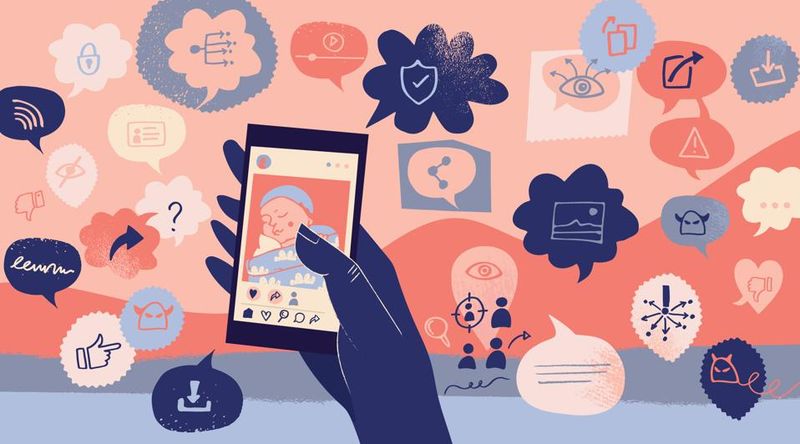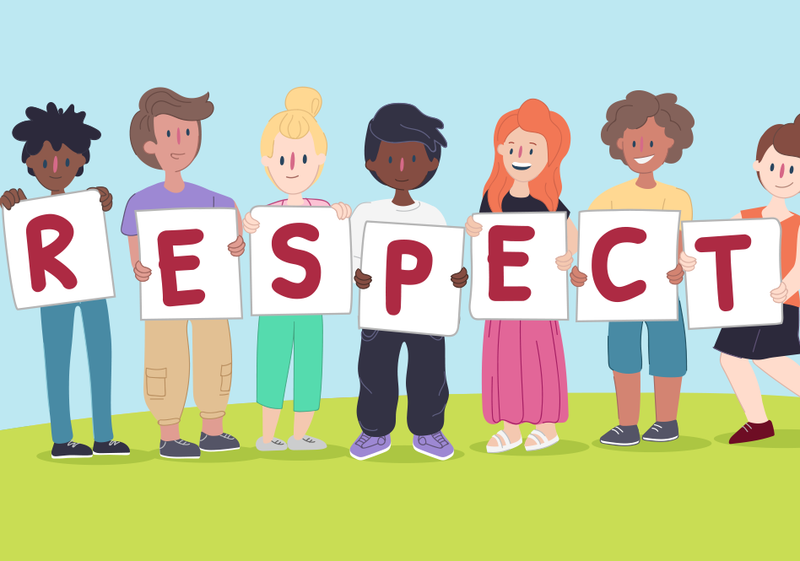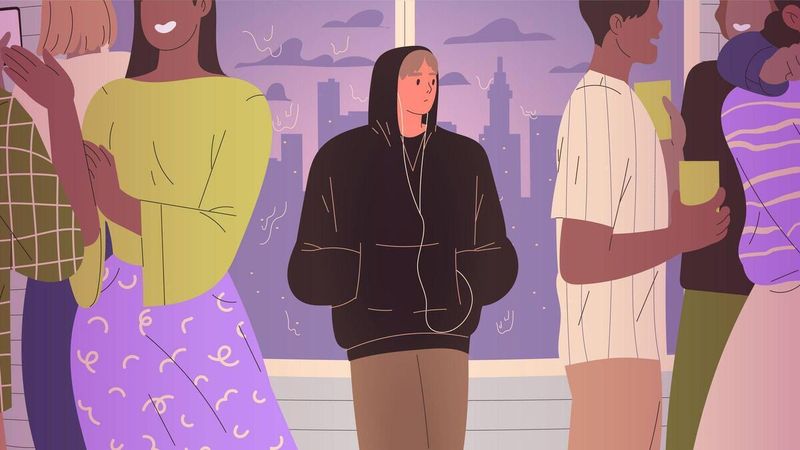Life for Gen Z is a blend of digital landscapes and real-world upheavals. Unlike previous generations, these kids face unique challenges, learning some of life’s toughest lessons in ways that are often public and fast-paced.
These 16 lessons highlight the realities that aren’t typically covered in textbooks or family conversations, reflecting the cultural and social pressures they navigate daily.
1. Validation online doesn’t equal self-worth
In the age of Instagram likes and TikTok views, Gen Z quickly learns that online validation doesn’t equate to genuine self-worth. The virtual applause feels exhilarating at first, but over time, the emptiness of digital approval becomes evident.
As the number of likes fluctuates, so does the sense of self-esteem for many. This harsh reality has taught them the importance of separating their identity from online personas.
The realization that real-world connections provide more meaningful affirmation than virtual thumbs-up marks a pivotal life lesson. Navigating this digital world requires resilience and a deep understanding of personal value beyond screens.
2. Loyalty isn’t always mutual
Growing up believing that loyalty is the ultimate virtue, Gen Z often confronts the painful truth that not everyone shares the same commitment. Friendships and relationships that seemed unbreakable can unexpectedly dissolve.
This lesson emerges from experiences where trust is misplaced, and expectations aren’t met. It’s a bittersweet awakening to discover that loyalty can be one-sided.
Yet, these moments foster personal growth, teaching Gen Z to cherish those who reciprocate their loyalty and to set boundaries where necessary. It’s a journey of learning to balance trust with discernment, ensuring emotional well-being.
3. Hustle culture doesn’t guarantee success
The allure of hustle culture captivates many, promising success through relentless work and sleepless nights. However, Gen Z is learning that working tirelessly doesn’t always lead to success or fulfillment.
This realization often comes after burnout or witnessing peers struggle despite their efforts. The myth that constant grinding guarantees achievement is debunked through real-life experiences.
Balance becomes the key, as they learn to value quality over quantity, and mental health over exhaustion. This harsh lesson steers them towards redefining success on their own terms, embracing a more sustainable approach to career and life.
4. Not all “friends” want the best for you
Friendships during adolescence are often intense and seemingly lifelong. Yet, Gen Z discovers that some “friends” may harbor envy or ill intentions, masked by smiles and shared secrets.
This lesson in discernment is crucial as they navigate social dynamics. It’s a reality check when trusted friends reveal their true colors in moments of need or vulnerability.
While this realization can be disheartening, it equips them with the wisdom to choose friends who genuinely support and uplift. Authentic connections are treasured, while toxic ones are left behind, fostering a healthier social environment.
5. Mental health days aren’t a cure-all
Mental health days have gained popularity as a quick fix for stress and burnout, yet Gen Z learns early that they aren’t a panacea. While beneficial, a day off doesn’t solve underlying issues such as anxiety or depression.
This lesson emphasizes the importance of ongoing mental health care, like therapy or regular self-care routines. A single day might provide temporary relief, but consistent attention to mental well-being is necessary for true healing.
Understanding this prompts a more proactive approach to mental health, encouraging not just rest, but also resilience and thoughtful care management.
6. People will treat you how you let them
Setting boundaries is a skill not often taught in traditional settings, yet Gen Z finds it crucial for self-preservation. Allowing others to overstep personal limits leads to discomfort and resentment.
This realization comes from experiences where passivity results in misused trust or imbalance in relationships. Recognizing that personal treatment is largely under their control, they learn to assert themselves confidently.
The empowerment from establishing boundaries is transformative, leading to healthier interactions and relationships. It’s about knowing one’s worth and ensuring it’s mirrored in the respect received from others.
7. Privacy is power—oversharing is not connection
The digital age encourages sharing every detail of life online, yet Gen Z discovers that oversharing can erode privacy and personal power. Not every moment needs to be public; some are best kept personal.
This lesson often follows instances where oversharing leads to misunderstandings or breaches of trust. The realization that true connection doesn’t require sharing every aspect of life is liberating.
By valuing privacy, they cultivate deeper, more meaningful relationships based on genuine connection rather than public performance. It’s a shift from seeking approval to fostering authenticity and personal empowerment.
8. Adults aren’t always right
Raised to respect authority, Gen Z experiences a pivotal moment when they realize adults aren’t infallible. Whether it’s outdated advice or mistakes in judgment, adults can err as much as anyone.
This lesson encourages critical thinking and independent decision-making. It’s about questioning established norms and recognizing that authority doesn’t always equate to correctness.
By understanding this, Gen Z learns to trust their own instincts and insights, fostering a sense of agency and responsibility. It’s an empowering shift from blind obedience to thoughtful evaluation and action.
9. College isn’t a magical fix for the future
For years, college was deemed the golden ticket to a prosperous future. However, Gen Z is now witnessing that a degree doesn’t guarantee success or satisfaction.
This realization often accompanies the struggle to find employment or seeing peers in unrelated fields. The traditional path is questioned as they explore alternative careers and educational routes.
Adapting to this reality involves redefining what success means beyond academic achievement, valuing skills and experiences over just credentials. It’s about creating a fulfilling path that aligns with personal goals and aspirations.
10. Love doesn’t mean someone will change
In relationships, Gen Z learns that love doesn’t always result in change. The hope that affection will inspire growth or transformation in a partner often leads to disappointment.
This lesson is a sobering reminder that change must come from within, not as a response to external pressure. It’s about accepting partners as they are, rather than who they could become.
Understanding this fosters healthier relationships, based on acceptance and respect rather than unrealistic expectations. It’s a journey towards relational maturity and emotional intelligence.
11. Respect is earned, not automatic
Respect is often assumed to be a given, yet Gen Z learns that it must be earned through actions and integrity, rather than demanded. This realization often follows experiences where respect was expected but not reciprocated.
Understanding that genuine respect comes from authenticity and consistency encourages personal growth and self-reflection. It’s about aligning words with actions to build trust and admiration.
This lesson empowers them to cultivate environments where respect is mutual and sincere, enhancing both personal and professional relationships.
12. Being different doesn’t always feel empowering
Embracing uniqueness is celebrated, yet Gen Z learns that standing out can also lead to feelings of isolation. The challenge of being different is real, especially when societal norms lean towards conformity.
This lesson is about balancing individuality with belonging, finding spaces where their uniqueness is valued and understood. It’s a journey of discovering self-acceptance amidst external pressures.
While being different is ultimately empowering, it requires resilience and a strong sense of self. The beauty of individuality comes with its own set of challenges, teaching Gen Z to navigate them with courage and grace.
13. Your job won’t love you back
Entering the workforce, Gen Z quickly realizes that jobs don’t reciprocate loyalty or affection. The dedication and late nights don’t necessarily lead to appreciation or advancement.
This lesson is a stark reminder that work is transactional, and personal fulfillment should not be solely tied to a job. It’s about finding balance and not sacrificing well-being for professional success.
Understanding this encourages them to seek careers that align with personal passions and values, rather than just paycheck-driven choices. It’s a shift towards a more holistic view of work-life balance.
14. Burnout hits faster than expected
The fast-paced lifestyle and constant connectivity lead Gen Z to experience burnout quicker than anticipated. The pressure to keep up with everything—work, social media, and personal ambitions—is overwhelming.
This lesson highlights the need for self-care and setting realistic goals. It’s a wake-up call to prioritize health over productivity and to recognize the signs of burnout before it escalates.
By learning to say no and taking time to recharge, they adopt healthier habits that promote longevity and well-being. It’s about creating sustainable rhythms in a demanding world.
15. It’s okay to outgrow people
Friendships and relationships evolve, and Gen Z understands that outgrowing people is a natural part of life. It’s a challenging yet necessary aspect of personal growth.
This lesson is about acknowledging changes in interests, values, and life paths. Letting go doesn’t diminish past connections; rather, it honors personal development and new beginnings.
Embracing this truth allows for the formation of new, more aligned relationships that support and reflect current goals and dreams. It’s a testament to growth and the ever-evolving journey of life.
16. Boundaries are non-negotiable—even with family
Setting boundaries with family is often the most difficult, yet Gen Z learns that it’s essential for maintaining mental health and personal autonomy. Family dynamics can blur lines, leading to discomfort or overstepping.
This lesson is about asserting one’s needs while navigating familial expectations. It’s a testament to self-respect and understanding that boundaries are a sign of a healthy relationship, not a lack of love.
By doing so, they foster relationships that honor individuality and mutual respect, paving the way for authentic connections even within the family unit.

















